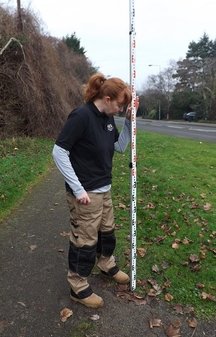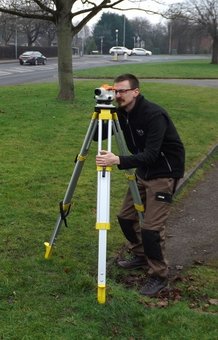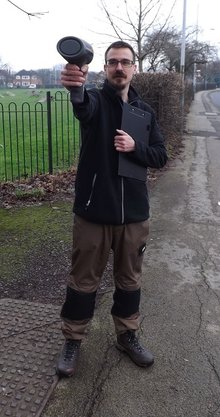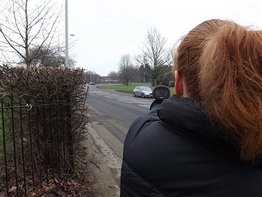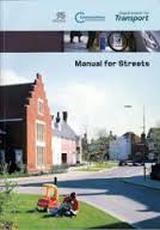Access Feasibility Studies
Any project which results in the creation of a new highway access is likely to require an Access Feasibility Study (as a minimum), in order to support the relevant Planning Application. The same is often true of any development which intensifies use of an existing access.
A typical Access Feasibility Study will detail the layout of any existing access and provide information about local traffic flows and/or speeds. It will usually be accompanied by a scale, plan-view drawing showing the potential geometry and visibility splays of any new access.
Each project examined by Highway Access Solutions will receive a bespoke Brief & Fee proposal. However, costs will generally range from £350 to £950 per access (exclusive of expenses and disbursements). The exact fee will depend on the complexity of the site, the need for survey work (such as that detailed below), and the nature of the local highway network.
Any project which results in the creation of a new highway access is likely to require an Access Feasibility Study (as a minimum), in order to support the relevant Planning Application. The same is often true of any development which intensifies use of an existing access.
A typical Access Feasibility Study will detail the layout of any existing access and provide information about local traffic flows and/or speeds. It will usually be accompanied by a scale, plan-view drawing showing the potential geometry and visibility splays of any new access.
Each project examined by Highway Access Solutions will receive a bespoke Brief & Fee proposal. However, costs will generally range from £350 to £950 per access (exclusive of expenses and disbursements). The exact fee will depend on the complexity of the site, the need for survey work (such as that detailed below), and the nature of the local highway network.
|
Site Level / Gradient Survey
It is common to prepare an Access Feasibility Study based on commercially-available Ordnance Survey mapping. However, some projects will ultimately require a topographical survey to be undertaken by a third-party supplier. Highway Access Solutions also have the ability to deliver a basic site level / gradient survey using calibrated SCCS instruments 'in-house'. This ability can potentially defer or avoid the need for more expensive survey work. In the event that a topographical survey is required, Highway Access Solutions can also recommend reputable and cost-effective suppliers with whom we have worked previously. |
Speed Survey / Visibility Calculations
Highway Access Solutions possess civilian Radar 'speed guns', similar in nature to that recently used by most UK Police forces. It is accurate to +/- 1mph when used by out trained staff in accordance with the principles of CA185 [DfT]. Such surveys are conducted as discretely as possible, typically from the pavement or verge, aiming to collect unbiased free-flow traffic speed data.
Highway Access Solutions possess civilian Radar 'speed guns', similar in nature to that recently used by most UK Police forces. It is accurate to +/- 1mph when used by out trained staff in accordance with the principles of CA185 [DfT]. Such surveys are conducted as discretely as possible, typically from the pavement or verge, aiming to collect unbiased free-flow traffic speed data.
|
Once sufficient data has been collected, average speeds and appropriate design speeds are established in accordance with the principles of "Manual for Streets"and "Manual for Streets 2" [DfT, 2007; CIHT et al, 2010]. Based on this data and various formulae, it is then possible to establish the distance over which vehicles emerging from an access must be able to view oncoming traffic.
Although we typically undertake Speed Surveys as part of an Access Feasibility Study, we can also undertake these on a stand-alone basis, on behalf of local authorities, developer clients or community groups. Please contact us to discuss the fee for such work. Should it not be practical (or safe) to conduct a manual speed survey at your site, we are also able to commission very large but somewhat less-precise datasets by commissioning Automatic Traffic Counts (ATCs). These are usually undertaken by third-party suppliers with whom we have worked regularly in the past. |
